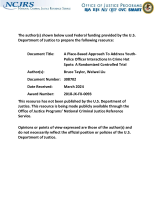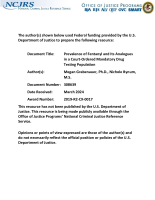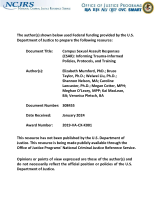An Examination of Harm Reduction Strategies in Oxycodone and Adderall Buyer Feedback on AlphaBay
Journal
Criminology & Public Policy
Date Published
November 2023
Agencies
NIJ-Sponsored
Publication Type
Research (Applied/Empirical)






